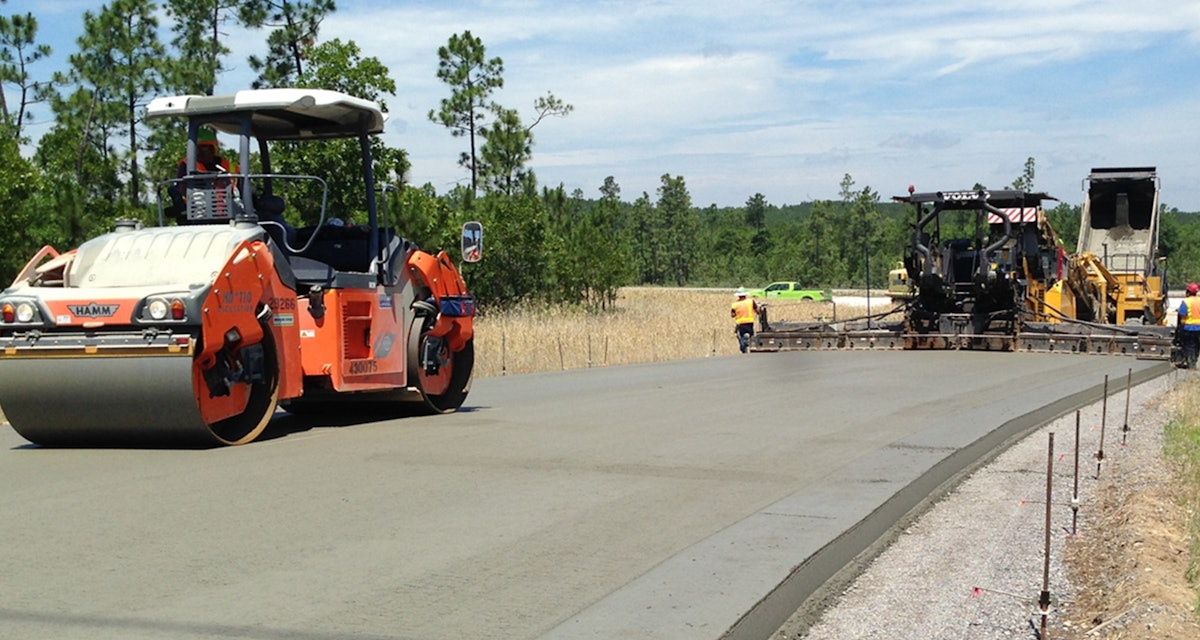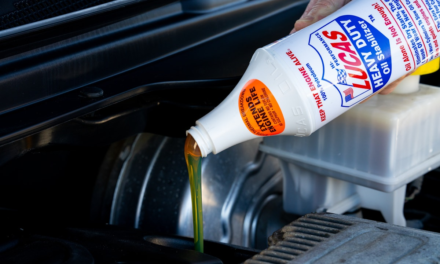Infrastructure is an obligation and a chance. It’s an obligation as a result of we are able to’t dwell with out it and a chance since there’s at all times room for enchancment. Of the numerous types of infrastructure, paved surfaces – roads, bridges, parking heaps, industrial yards – could be the least possible place to search for alternative till you contemplate that low-maintenance longevity is sort of at all times a prime precedence for the infrastructure investor. When it involves sturdiness, ease of upkeep, and uniformity of completed product, concrete is difficult to beat. But our insistence on innovation persists.
“Nearly all of the paved surfaces on the earth are asphalt, adopted by standard concrete,” begins Greg Halsted, Senior Director of Native Paving on the Nationwide Prepared Blended Concrete Affiliation (NRMCA). Halsted has 39 years of heavy civil infrastructure expertise throughout a profession that features roles with the Georgia Division of Transportation, The Portland Cement Affiliation (PCA), and the Concrete Reinforcing Metal Institute (CRSI) earlier than becoming a member of the NRMCA in 2023. Based in 1930, the NRMCA helps the enlargement and enchancment of the ready-mixed concrete trade by means of management, advocacy, workforce growth, and concrete expertise developments. “As a pavement engineer, I like the concept of developing with pavement options that deal with particular situational wants whereas additionally being very sturdy and sustainable. Curler-compacted concrete (RCC) is now extensively accepted and gaining floor on asphalt within the paving world and rightfully so.”
RCC makes use of the identical primary substances as standard concrete – cement, water, and aggregates – however does so in a drier combine extra like damp combination than a slurry. RCC may include supplementary cementitious supplies (SCMs) resembling fly ash and slag cement as nicely as chemical admixtures that improve the fabric’s recent and hardened properties.
“RCC is a zero-slump – some even say a negative-slump – concrete that’s consolidated by compacting it with vibratory rollers related to paving asphalt,” says Halsted. “It’s positioned shortly due to its excessive manufacturing charges and the absence of formwork and reinforcing metal. It requires rather a lot much less labor, in addition to fewer kinds of tools and supplies to put down. RCC’s sturdiness is principally equivalent to standard concrete. So, having it final for 40 to 60 years with minimal upkeep wouldn’t be unusual.”
RCC was launched commercially within the Seventies when the Canadian logging trade began participating in environmentally cleaner, land-based log sorting strategies requiring ultra-strong pavement to face as much as huge masses and specialised tools. In a way, RCC is one of the best of each worlds – the sturdiness of concrete with asphalt’s ease of utility. Nonetheless, as Halsted factors out, placement requires exact expertise, specialised tools, and ingrained consideration to element.
“Folks typically ask if RCC is difficult to position. My trustworthy reply is ‘Not for individuals who know what they’re doing,” Halsted says. Paving RCC includes inserting tools and methods much like these concerned in paving asphalt, which helps to make RCC very aggressive on a first-cost foundation in lots of markets. Factoring in its sturdiness and minimal upkeep necessities, RCC is the lower-cost paving materials over its service life. Whereas a lot of the world is paved in asphalt, affording alternatives to many contractors of various experience, little of the world is paved in RCC. Finest practices demand RCC-specific tools and experience in each concrete and asphalt paving.
Bridging the hole between progress and course of, Halsted is joined on this dialog by Corey Zollinger, Chairman of the RCC Pavement Council, a volunteer-led trade commerce affiliation based in 2014. A civil engineer by coaching, Zollinger and the Council are concentrating on rising RCC’s market share by rising workforce experience.
“Probably the most crucial aspect within the determination to make use of RCC is hiring a contractor who has the tools, expertise, and educated personnel this materials requires,” says Zollinger. The Council’s members embrace contractors, engineers, and tools and materials suppliers. Membership tiers embrace Contractors, Contractors-in-Coaching, Associates, and Allies. “The most important problem with RCC is the training curve. Our Contractor-in-Coaching program is open to companies which have 5 RCC initiatives or much less or might not have all of the tools or personnel in-house.”
Zollinger advises any pavement or concrete contractors considering of including RCC to their arsenal to affix the Council and take benefit of the coaching, expertise, and community of sources required to make RCC operationally environment friendly.
“There isn’t a studying on the job. In case you are new to this, it goes to take an funding. That’s not solely cash however your mind and your coronary heart too,” says Zollinger, the son of a concrete pavement professor who lower his enamel within the trade as a soils lab technician. “RCC just isn’t a forgiving materials. As a no-slump concrete, there isn’t any top-to-bottom motion. It’s essential to pay shut consideration to the combination design in manufacturing and placement requires high-density compaction pavers and vibratory rollers. RCC is compacted to a pure end that appears like asphalt. It may be power-troweled or given a broom end if desired. It’s then sprayed with a curing compound that enables the concrete to take care of water content material whereas it positive aspects power at an applicable price.”
Operationally, RCC’s benefit over standard concrete is the velocity of placement. With out formwork and reinforcing metal as a part of the equation, pavers want little greater than a string line to observe to put down the floor. Due to RCC’s density, contractors can enable mild site visitors to cross it comparatively quickly after it’s positioned, that means owners can entry their driveways throughout building.
“RCC will obtain 2,500 psi or extra in three days, and it will be opened to site visitors shortly after placement,” says Zollinger of a profit that will increase RCC’s enchantment as a municipal roadway in city areas. “Now we have seen situations the place a serious intersection was being paved at 10:30 within the morning and opened to site visitors by 5 o’clock.”
As a commerce affiliation, the RCC Pavement Council strives to present the management, sources, and route the trade wants. As such, Zollinger and his colleagues are creating an amalgamated Environmental Product Declaration (EPD) primarily based on member knowledge from throughout a variety of trade averages.
“Amongst pavements, because of the a lot decrease cementitious content material, RCC is much less carbon intensive than both standard concrete or asphalt,” finishes Zollinger. “Utilizing sustainable constructing supplies is vital for homeowners. The EPD will exhibit RCC’s sustainable benefits over standard concrete or asphalt.”
Halsted agrees and stresses the significance of selecting the proper pavement for practical wants and particular circumstances.
“At this level, homeowners creating initiatives involving pavement ought to consider RCC pavement as an possibility together with asphalt and standard concrete,” he says. “For instance, an industrial lot requiring 14 inches of asphalt might solely require 8 inches of RCC. That’s an enormous distinction. When you think about the longevity of the pavement, RCC is way superior within the price/profit evaluation.”
As for detractors, past some first prices and the necessity for extremely skilled RCC contractors, the principle knock towards RCC pavement to this level has been floor smoothness.
“Fifteen years in the past, RCC wasn’t being paved to the identical stage of smoothness as standard concrete,” continues Halsted who’s the Chair of the American Concrete Institute’s (ACI) Committee 327 to replace the Information to Curler Compacted Concrete Pavements. Meant to offer homeowners, contractors, materials suppliers, and others with an intensive introduction to RCC, the Committee is engaged on documenting key adjustments in RCC science because the Information’s authentic 2015 launch (see inset). “For fairly a very long time now, RCC has been used to pave surfaces that help excessive site visitors and heavy masses. With improvements in combination mixtures, compaction tools, and components, RCC is getting used for DOT initiatives, common parking heaps, municipal roads, and even small purposes like a golf course cart path. Similar to any high quality constructing materials, RCC has gotten higher over time.”





